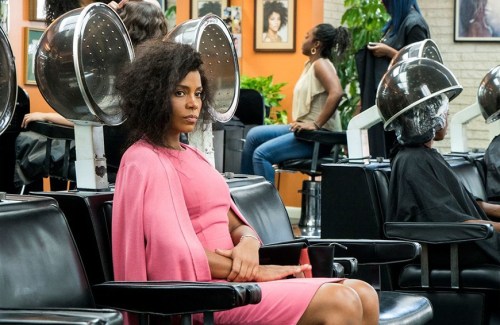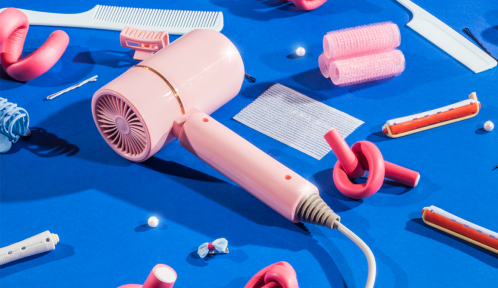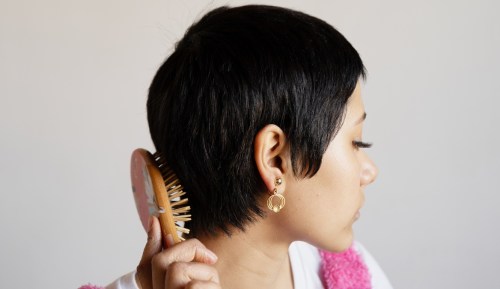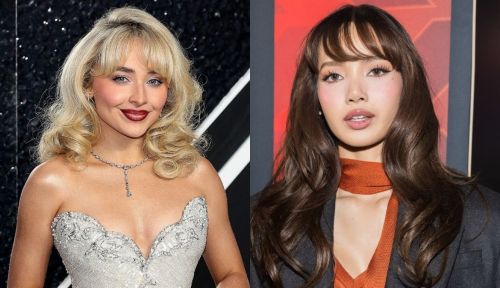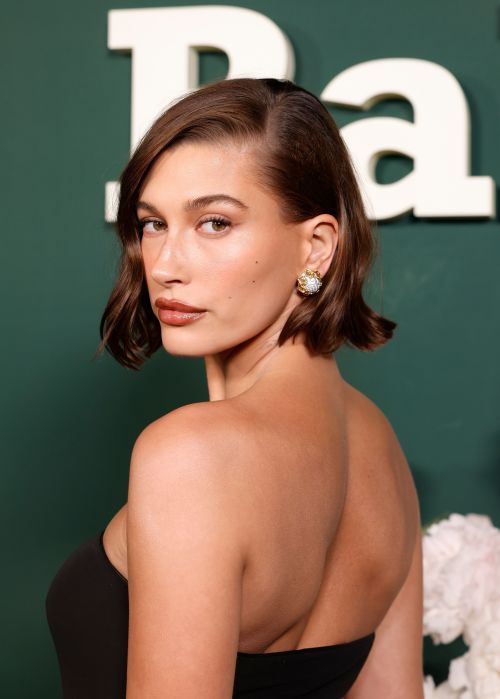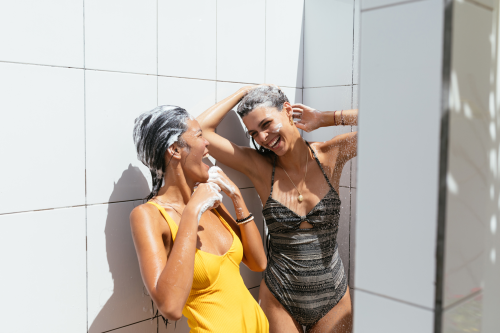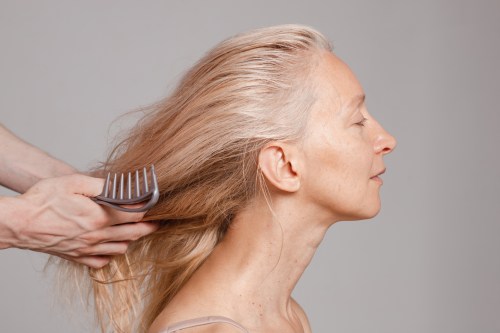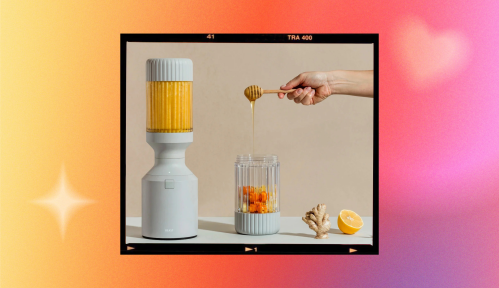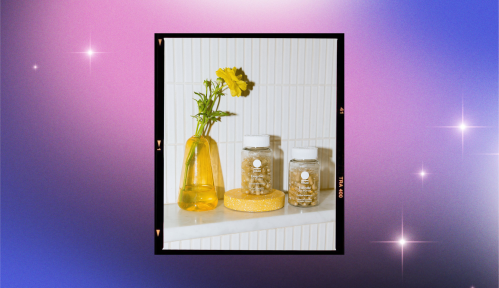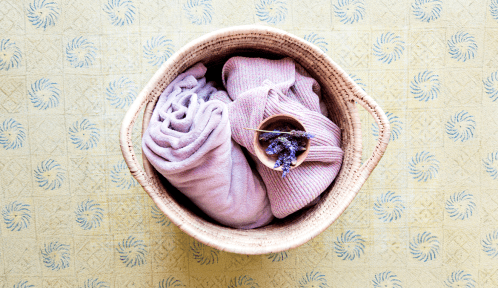Netflix’s new original film Nappily Ever After is a tale as old as time for women of color. The movie centers on the complicated intersection between hair and identity—in particular, the idea that a black woman’s social acceptance is dependent upon the condition of her hair.
Doesn’t sound like much of a fairy tale, does it?
It’s a straight-up impossible standard to live up to, beauty or otherwise. And the movie’s main character, Violet (played by actress Sanaa Lathan), struggled with it from an early age. Vi’s mother came from an era before the feminist and Civil Rights movements, and she impressed upon her daughter that straight, smooth locks attract Prince Charmings and perfect endings.
But achieving such tresses often involves painful, pre-dawn hair appointments with hot tools and harsh chemicals—not to mention that this beauty ideal left Vi with a paranoia about having a hair out of place, preventing her from living her best life. No swimming or running in sprinklers as a kid. As an adult, it means being an obsessive weather watcher and never having “sweatin’ out my blowout” sex with her hot doc boyfriend, Clint, played by British actor Ricky Whittle.
It’s definitely not glamorous, which could be why black women’s hair isn’t often a storyline mainstream media embraces. For that reason alone, Nappily Ever After is worth watching. (If we want more diversity in our entertainment, we have to show the industry there’s a demand for it.)
I’ve watched the film, and I found myself identifying with Vi. Not because my mother pushed such an agenda on me, but because society did. In the small farm town in Ohio where I grew up, my curly hair stuck out as much as I did, the only non-white student in my class. Wanting to “fit in,” I begged my parents to let me get a relaxer in third grade. I can still remember the excruciating sensation of my scalp burning as I waited for it to set. The inflammation it caused resulted in welts that would flake and itch. Something else I’ll never forget? The noxious smell of chemicals swirling around below the hood of a hairdryer.
Today, I spend a lot of time researching what goes into the products I put on my head. One thing I’ve learned is that hair care targeted toward black women tends to contain chemicals tied to greater risks of cancer, asthma, and hormone imbalance.
A study published last spring looked at 18 common hair products used by women of color, and found that they contained 66 potentially harmful chemicals—often in combination, which increased their toxicity. Chief among them were two known endocrine disruptors, parabens and phthalates. “We found dozens of these chemicals in the products, with multiple chemicals in each product,” Jessica Helm, the study’s lead author and a research fellow at the Silent Spring Institute, told Scientific American. Her research found 30 percent of the products contained nonylphenol, a chemical linked to higher rates of breast cancer and obesity.
Another study, published this summer in the American Journal of Obstetrics and Gynecology, confirmed these findings. It also noted that hair care isn’t the only area of concern. Other beauty products heavily marketed to black women, such as skin-lightening creams and vaginal douches, may contain harmful ingredients including steroids and mercury.
Hair care targeted toward black women tends to contain chemicals tied to greater risks of cancer, asthma, and hormone imbalance.
While Nappily Ever After didn’t address these studies directly—the film was likely wrapped before their release—the need for safer products for black women was a big part of the picture. Vi’s second love interest, Will (Lyriq Bent), owns a hair shop but has a passionate side hustle creating safer, natural hair products for his clients.
The plotline feels a bit like art imitating life, as it’s very close to the circumstances around which Lisa Price started her groundbreaking hair care company, Carol’s Daughter, out of her brownstone in Brooklyn. But that was back in 1993. Little has changed since then…other than that black shoppers now spend $473 million on hair care annually, according to Neilsen reports.
One solution? Cutting all your hair off, like Vi did in the film. I did the same once, and found it liberating. Not because of damage, which is what leads Vi to do her best Britney Spears impersonation with a set of buzz clippers. But because, like her, I’d always wondered what it would be like to not have to worry about my hair for once. Some women might be happy with a close crop as a long-term solution, but for me, the joy of letting go of my locks faded fast. What replaced it was a lot of struggling to understand that I hadn’t given away my self-worth with the ponytail I donated to make wigs for cancer patients.
Now, I wear my hair however I want—straight or curly. And I don’t feel pressure to make it conform to anybody’s ideas of beauty but my own. Yet I’m still vexed that the products designed for black women are so dangerous. It’s time for brands that profit from our spending power to start cleaning up their acts. That is a happy ending all women of color deserve. And not just in fairy tales.
Even Kourtney Kardashian is lobbying for clean beauty these days—and luckily, it’s becoming more accessible. For instance, did you know you can now buy safer skin care products for $3 a pop?
Sign Up for Our Daily Newsletter
Get all the latest in wellness, trends, food, fitness, beauty, and more delivered right to your inbox.
Got it, you've been added to our email list.
